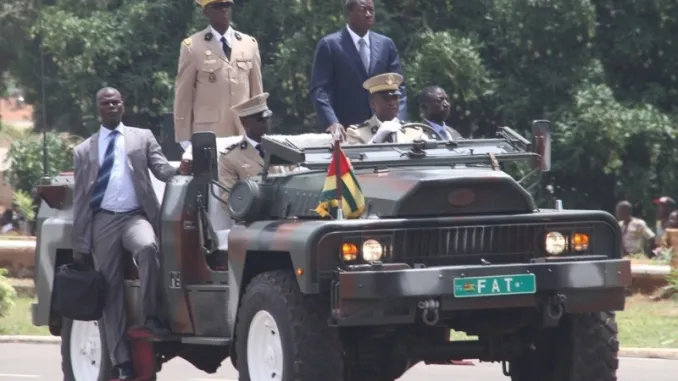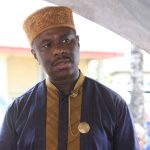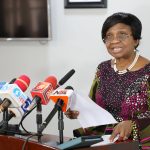By Paul Ejime
As widely expected, Togo’s national electoral commission has declared the ruling Union for the Republic (UNIR) Party, as the overwhelming winner of the country’s divisive parliamentary and regional elections held on 29th of April 2024, paving the way for President Faure Gnassingbe to accomplish the dream of prolonging his 19-year stay in power.
According to the results announced by the Commission on Saturday, the UNIR won 108 of the 113 available seats in what opposition parties and civil society groups dismissed as a sham vote that followed the government-pushed constitutional changes approved by the UNIR-dominated parliament 10 days before the elections.
David Dosseh, one of Togo’s prominent civil society activists fighting against injustice and impunity, has described the changes as a “constitutional and electoral coup.”
Speaking after the elections as a panelist on a television program with this writer, Dosseh explained that “most of Togo’s estimated nine million citizens have not seen the texts” of the constitution passed by the parliament on the 19th of April.
The hurriedly passed changes preceded by two postponements of the elections have far-reaching consequences on Togo’s political governance and electoral system.
Without adequate consultation, the changes turned Togo from a presidential to a parliamentary governance model and from a direct system of electing the President/Prime Minister to an indirect one.
Ninety-one MPs had emerged from the opposition-boycotted 2018 parliament elections in Togo.
Following the changes, the number of parliamentarians was increased to 113, who are now to elect the President of the Republic, with a largely ceremonial status for a five-year mandate. The MPs from the majority party in parliament will also elect the Prime Minister/President of the Council of Ministers with executive powers, who will serve for six years.
This is even though, Article 2(1), SECTION II of the 2001 ECOWAS Supplementary Protocol on Democracy and Good Governance, clearly states that “No substantial modification shall be made to the electoral laws in the last six (6) months before elections (in member States), except with the consent of a majority of political actors.”
Before the latest elections, ECOWAS, the regional economic bloc had sent a pre-election fact-finding mission from 15th – 20th of April to Togo.
The objective of such missions in the past was to ascertain the level of preparedness, identify challenges if any, and determine whether the political environment met international standards for credible and transparent elections.
Like in previous elections in Togo, where politics has been dominated by the Eyadema family since the country’s independence from France in 1960, the last polls were overshadowed by political tensions and government suppression of opposition and public protests.
Faure assumed power in 2005 following the death of his father Gnassingbe Eyadema, who ruled Togo with an iron fist backed by a notoriously repressive armed forces for almost four decades.
According to the opposition, the same armed forces, with senior officers drawn largely from the Kabye ethnic group of northern Togo, imposed Faure on the country and have continued to support him to the hilt. They are afraid of losing power to another ethnic group while Faure is also riding on the crest of his father’s dictatorship.
Faure’s current mandate ends in 2025 but with the ‘fait accompli’ achieved with the pre-determined outcome of the elections based on questionable constitutional and electoral changes, the coast is now clear for him to assume the position of Prime Minister/President of the Council of Ministers to elongate his tenure.
Dosseh acknowledges that neither the opposition parties nor the civil society groups in Togo are in a strong position to challenge the Faure government. This is mainly because poverty and repression have been weaponized, leaving the citizens in a traumatized, if not dehumanized state of permanent fear.
External support also appears not forthcoming. For instance, ECOWAS, which under normal circumstances, should take a principled stance by calling out the Togolese government over the violation of the regional protocol appears to be “playing it safe.”
Four of its 15 member States – Guinea, Mali, Burkina Faso, and Niger – are under military dictatorships, and the last three countries have already served notice of their intention to quit the regional organization altogether.
According to diplomatic sources, there is therefore the fear by the ECOWAS leadership that Togo could join the rogue group if the organization came hard on the country.
So, instead of capitalizing on the recent positive development in Senegal, where the opposition parties combined with the population and vibrant civil society groups to checkmate President Macky Sall, who had wanted to play a similar tenure elongation game, ECOWAS has developed cold feet, further eroding what remains of its dented integrity and reputation.
Faure has contributed to the disunity in the ECOWAS ranks by fraternizing with the military juntas and making the regional sanctions ineffective. By sparing him the consequences of his “bad behaviour,” ECOWAS is vindicating critics who accuse the organization of weakness and inconsistency by applying one set of rules for “political, constitutional and electoral coups” and another for military coups.
The critics have cited several recent instances, such as the dissolution of Guinea Bissau’s Parliament by President Umaro Embalo; former President Sall’s sacking of Senegal’s Electoral Commissioners close to the last presidential election, which his ruling party lost, and now, the controversial constitutional and electoral changes, less than two weeks before the parliamentary and regional elections in Togo.
While the implications and potentially negative consequences of the Faure government’s violation of the ECOWAS protocol against an unconstitutional change of government may yet unfold, the regional organization, along with the African Union and La Francophonie, which observed the elections at the invitation of the administration in Togo have failed the people of Togo and Africans in general.
Against their standard practice, the three organizations did not issue Preliminary Observation reports on the elections. They merely released a timid joint statement, saying that the vote was “inclusive,” contrary to widely held opinion in the country.
By their act of omission or commission, the three organizations might have allowed the Faure administration to use them to rubber-stamp an illegitimate act.
The ECOWAS Commission in 2009 stopped the then-President Mahamadou Tandjan from dissolving Niger’s parliament, and also in 2011, declined an invitation to observe the presidential election organized by then-President Yahya Jammeh because there was no level playing field for the poll.
The Commission refused to recognize the outcome of that election and Jammeh held another election in 2016, which he lost but wanted to claim victory before ECOWAS intervened, resulting in his current exile to Equatorial Guinea.
The African Commission on Human and Peoples’ Rights has its headquarters in Banjul, the Gambian capital, yet the AU could not muster the courage to take the type of tough but principled decisions that earned ECOWAS international acclaim.
If ECOWAS is to regain its past glory, this is the time for more tough, strategic result-oriented, impactful, transformational and pro-people actions borne out of critical thinking.
Inconsistency, duplicity, fear, or sitting on the fence will further divide the organization and derail the regional integration goal of its founding fathers.
On the other hand, Togolese citizens, especially the pro-democracy advocates owe themselves and the region a patriotic duty to work together against all undemocratic forces in their country.
Time and circumstances might be different, but the anti-apartheid fight in South Africa is an illustration that outside support will only complement a focused, united and aggressive internal struggle. Right, liberty or freedom is taken not given!
Ejime is an Author, Global Affairs Analyst, and Consultant on Peace & Security and Governance Communications
























Leave a comment